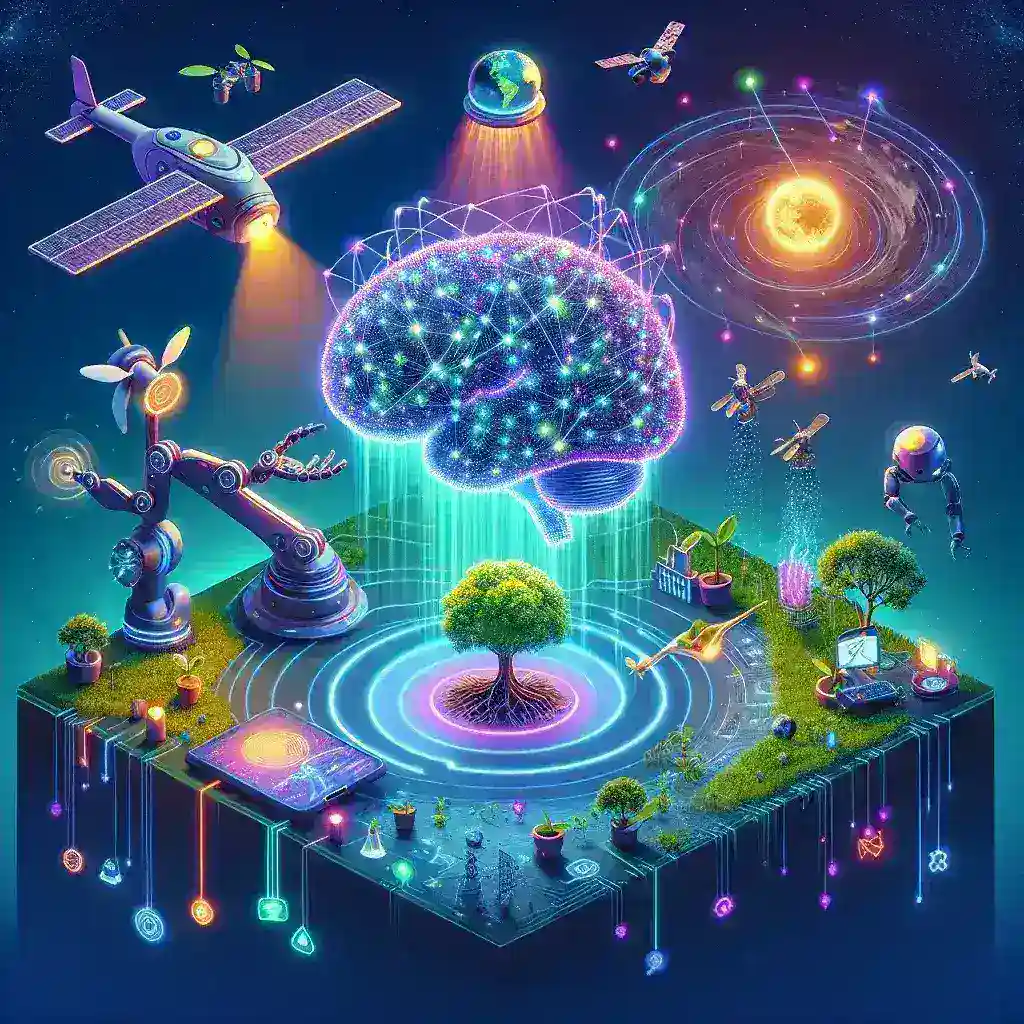In recent years, artificial intelligence (AI) has emerged as a revolutionary tool in diverse fields, and environmental conservation is no exception. With climate change, biodiversity loss, and resource depletion posing significant threats, AI offers innovative solutions to support and enhance conservation efforts. This article delves into the role of AI in bolstering environmental conservation, exploring various applications, benefits, and future prospects.
The Impact of AI on Climate Change Mitigation
AI plays a pivotal role in climate change mitigation through accurate data analysis and predictive modeling. By leveraging machine learning algorithms, researchers can forecast climate patterns, assess the impact of human activities, and formulate effective strategies to curb greenhouse gas emissions.
Predictive Analysis
One of the noteworthy applications of AI in climate change is predictive analysis. AI models analyze vast datasets from satellites, weather stations, and other sources to predict future climate scenarios. These predictions help policymakers and organizations prepare for extreme weather events and design adaptive measures.
Optimizing Renewable Energy
AI enhances the efficiency of renewable energy sources like solar and wind power. Through real-time data analysis, AI can optimize energy production, storage, and distribution, leading to reduced reliance on fossil fuels and a decrease in carbon emissions.
Conservation of Biodiversity
AI’s role in biodiversity conservation is transformative, offering innovative ways to monitor and protect wildlife. Advanced technologies like image recognition, remote sensing, and bioacoustics are employed to gather and analyze data, ensuring more effective conservation strategies.
Wildlife Monitoring
AI-powered drones and camera traps are revolutionizing wildlife monitoring. These tools can identify and track endangered species, estimate population sizes, and detect poaching activities, providing crucial data to conservationists.
Habitat Restoration
Restoring degraded habitats is critical for biodiversity. AI aids in identifying suitable areas for restoration by analyzing factors like soil quality, vegetation, and climate. This ensures that reforestation and rehabilitation efforts are more targeted and successful.
Sustainable Resource Management
Efficient resource management is essential for environmental sustainability. AI helps in optimizing the use of natural resources, minimizing waste, and promoting sustainable practices across industries.
Water Management
AI-driven solutions in water management include predictive models for rainfall, soil moisture sensors, and automated irrigation systems. These technologies help in conserving water resources and ensuring agricultural productivity.
Waste Management
AI facilitates efficient waste management through smart sorting systems, recycling automation, and waste reduction strategies. By analyzing waste patterns, AI can optimize recycling operations and reduce landfill use.
The Future of AI in Environmental Conservation
The integration of AI in environmental conservation is still in its nascent stages, but the potential is immense. Future advancements could lead to more refined and scalable solutions, fostering sustainable development and resilience against environmental challenges.
Smart Cities
AI can play a crucial role in developing smart cities that prioritize sustainability. Through intelligent traffic management, energy-efficient buildings, and efficient waste disposal systems, AI can enhance the quality of urban life while reducing environmental impact.
Citizen Science
AI-powered apps and platforms enable citizen scientists to contribute to conservation efforts. By leveraging crowd-sourced data and AI analysis, researchers can gain valuable insights into environmental changes and biodiversity trends.
Ethical Considerations
While AI offers numerous benefits, ethical considerations must be addressed. Ensuring data privacy, avoiding biases in AI algorithms, and promoting transparency are vital for responsible AI deployment in conservation.
In conclusion, AI holds great promise in enhancing environmental conservation efforts. From mitigating climate change and protecting biodiversity to managing resources sustainably, AI-driven technologies are paving the way for a greener future. As advancements continue, the collaboration between AI and environmental conservation will be critical in addressing the world’s most pressing ecological challenges.

